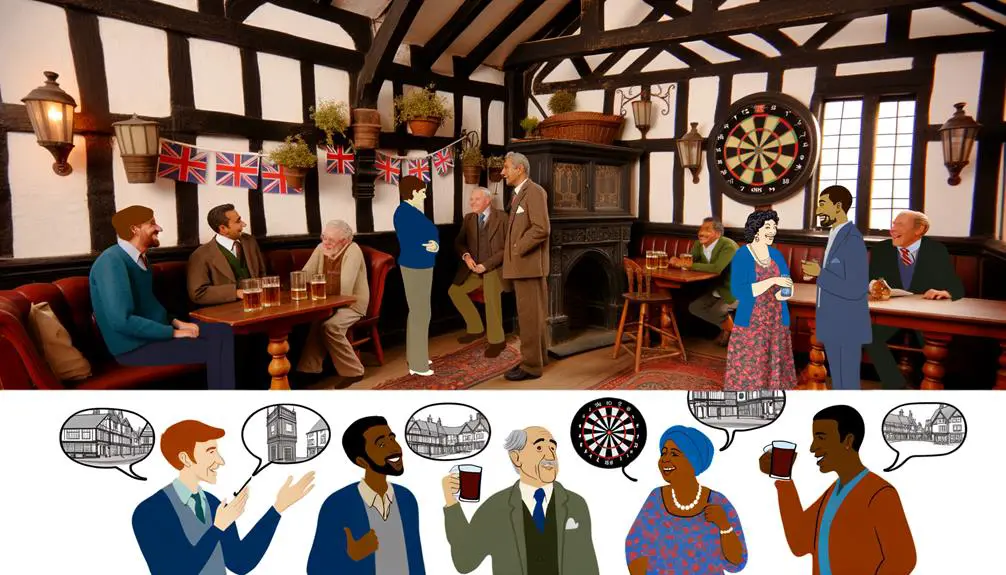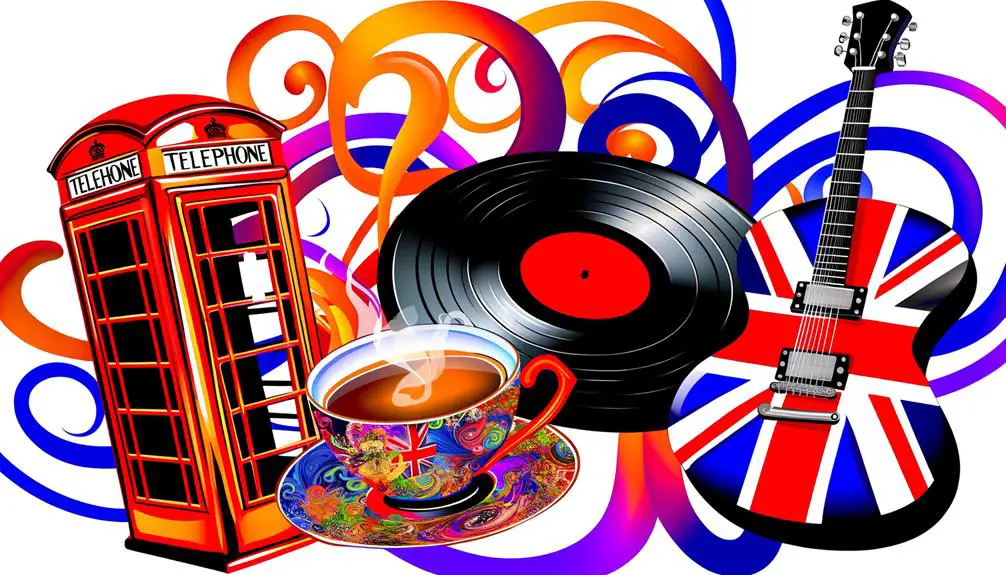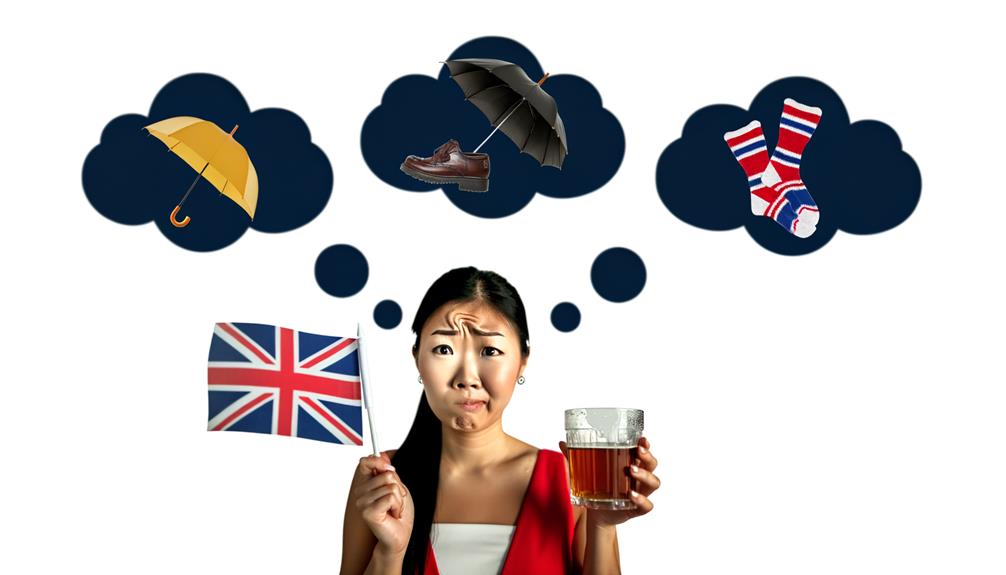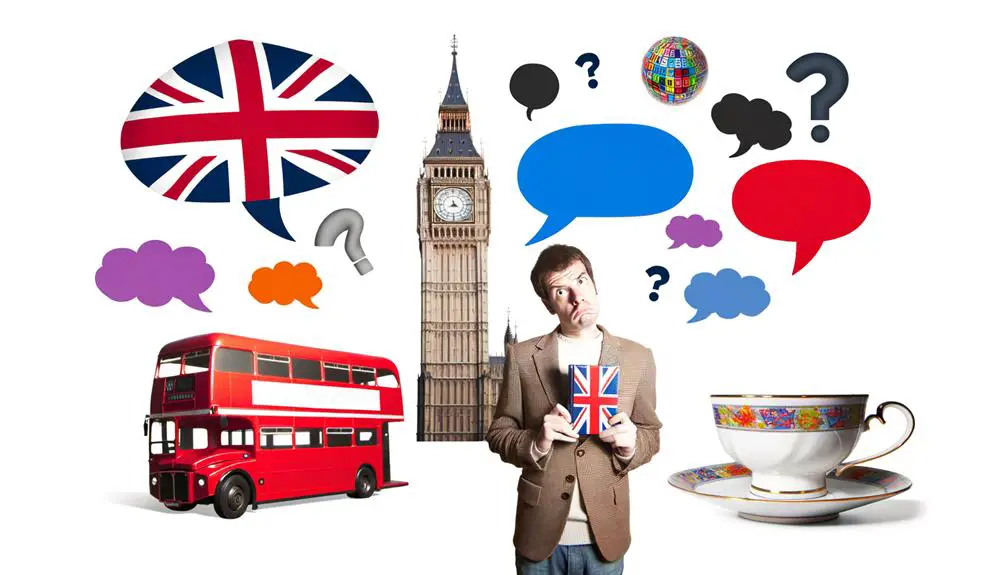In British slang, 'state' often points to disarray or something that's a mess. It's a term loaded with judgment or disapproval, reflecting on the situation or appearance in question. The origins of 'state' in slang are deeply tied to the UK's cultural nuances, indicating how language evolves with society. When you hear 'state' used, paying attention to context and body language is key, as its meaning can shift dramatically. This slang term's fluidity and versatility in usage underscore the subtle social dynamics at play. Grasping these nuances not only helps in understanding British slang better but also enriches your insight into the cultural and linguistic shifts happening across the UK. There's much to uncover about 'state' and its role in reflecting societal attitudes.
Origins of "State" in Slang

While the term 'state' has various meanings across different contexts, in British slang, it originally emerged to describe a situation or appearance in disarray or chaos. This evolution in language underscores the dynamic nature of slang and its ability to encapsulate complex societal phenomena accordingly. You'll find that the origins of 'state' as slang are deeply intertwined with the cultural and social fabric of British society. It reflects not just a linguistic shift but a broader societal impact, signaling changes in social attitudes and norms.
Language evolution, especially within slang, often mirrors societal transformations. As communities evolve, so do their languages, adopting new terms that resonate with the changing lifestyle, values, and attitudes. 'State,' in its slang connotation, is a prime example of this phenomenon. It encapsulates a collective understanding and shared experiences, offering insight into the societal dynamics at play during its inception.
The societal impact of such linguistic evolution is profound. It shapes communication, influencing both the speaker's and listener's perceptions of social realities. 'State,' as slang, accordingly serves not just as a linguistic tool but as a lens through which the nuances of British society can be examined, highlighting the intricate relationship between language and society.
Common Uses and Contexts
Understanding the common uses and contexts of 'state' in British slang reveals its versatility in everyday language, capturing a wide array of emotions and situations. When you hear someone in the UK referring to a person or thing as being 'in a state', they're not just making a casual comment. This phrase can pack a punch, depending on the tone and context. It might mean something is in disarray, a person is overly emotional, or perhaps that something simply doesn't meet the expected standards.
The social implications of calling something or someone 'a state' are significant. It can imply judgment or disapproval, creating a nuanced layer of interpretation challenges. For you, as an observer or participant in British conversations, decoding the exact meaning requires you to take into account the speaker's body language, the situation at hand, and the relationship between the speaker and the subject.
This slang term's fluidity means it's as likely to be used in jest as it's in genuine concern or critique. Understanding 'state' in its various contexts, hence, isn't just about learning a word—it's about grasping the subtle social dynamics and interpretation challenges that it represents in British vernacular.
Examples in Pop Culture

British slang, especially the term 'state', has found its way into pop culture, enhancing dialogues and character development in films, music, and television shows. You've likely heard it casually mentioned in a heated argument on a gritty British drama or cleverly used in the lyrics of a chart-topping UK hit. The term's versatility and depth add a layer of authenticity and local color that resonates with audiences, both domestically and internationally.
Let's explore how 'state' is used across various media platforms:
| Pop Culture Medium | Example of 'State' Usage |
|---|---|
| Music | In a song, an artist might describe their emotional turmoil as being in a 'state', offering a raw, unfiltered glimpse into their psyche. Music lyrics analysis often highlights such usage as a technique for relatability. |
| Television | A character on a TV show, overwhelmed by the chaos of their personal life, might declare they're 'in a right state', showcasing the term's ability to convey distress succinctly. Television show references like this exemplify the slang's integration into character narratives. |
This table illustrates just a snippet of how 'state' enriches pop culture, making it more vibrant and relatable. By understanding its application, you're not just expanding your vocabulary but also deepening your appreciation of British media.
Regional Variations
Just as the term 'state' has its nuances in popular culture, its meaning also shifts across different regions within the UK, offering a fascinating glimpse into the diversity of English slang. This variation is deeply rooted in the rich tapestry of dialectical differences and pronunciation nuances that define the British Isles.
As you explore these regional variations, you'll discover that the context in which 'state' is used can dramatically alter its interpretation.
In some areas, 'state' might refer to a mess or a situation of disarray, a usage that's fairly widespread. However, delve into the dialects of Northern England, and you might find it used more specifically to describe someone's appearance or behavior. Contrast this with parts of Scotland and Wales, where subtle pronunciation nuances can change the flavor of the term, sometimes even altering its meaning entirely.
Understanding these regional variations isn't just about getting the slang right; it's a window into the cultural and linguistic diversity that shapes the UK. Each variation tells a story of historical influences, social dynamics, and local identity, making 'state' a word that's as complex as the regions that give it color and life.
Tips for Using "State" Correctly

Having explored the diverse meanings of 'state' across the UK, it's now key to focus on how you can accurately use this term in various contexts. Understanding state etiquette is vital to make sure you're not inadvertently offending someone or miscommunicating your intentions. Given the term's flexibility, the context in which you use 'state' greatly influences its reception and interpretation.
Firstly, gauge the familiarity and comfort level of your audience. Using 'state' in a casual, friendly setting is generally acceptable, but exercising caution in more formal or unfamiliar groups is advisable to avoid misinterpretation risks. Pay attention to the tone and facial expressions of those around you when you use slang; these cues can offer immediate feedback on how your words are being received.
Secondly, consider the regional variations discussed earlier. What might be a harmless jest in one area could be construed quite differently in another. Being aware of these nuances can help you navigate social interactions more smoothly.
Lastly, remember that language evolves. Keeping abreast of how younger generations or different social groups use 'state' can make sure your usage remains relevant and understood. Being mindful of these tips will enable you to use 'state' effectively and respectfully in your conversations.
Frequently Asked Questions
How Has the Use of 'State' in British Slang Impacted the Perception of British Culture Internationally?
You've noticed that cultural stereotypes and international misunderstandings have grown, as the slang term 'state' shapes perceptions of British culture. This usage reflects and sometimes reinforces stereotypes, complicating how the culture's viewed globally.
Are There Any Psychological Implications Associated With the Frequent Use of the Term 'State' in a Derogatory Manner Within British Communities?
You notice how calling someone a "state" affects their mood. This frequent use can lead to changes in language evolution and social identity, subtly altering group dynamics and individual self-perception in your community.
How Do Non-Native English Speakers Typically React or Adapt to the Use of 'State' in British Slang When They Encounter It in the Uk?
When you first hear 'state' in British slang, language barriers and cultural confusion might throw you off. You'll likely adapt by observing context or asking locals, gradually understanding its nuanced use and implications.
Can the Use of 'State' in British Slang Be Tied to Any Specific Historical Events or Social Movements Within the Uk?
You'll find that the slang term "state" doesn't directly tie to historical events or social movements. However, its linguistic origins and regional variations reflect the UK's diverse cultural landscape and evolving language.
Has the Prevalence of Digital Communication and Social Media Influenced the Evolution of the Term 'State' in British Slang, and if So, How?
You've seen languages evolve, but digital dialects turbo-charge this process. Digital communication and social media have indeed influenced 'state's' evolution, introducing slang globalization that reshapes expressions with every tweet and post.
Conclusion
To wrap up, you've now navigated the murky waters of British slang, understanding how 'state' evolved from its formal roots into the cheeky term it's today. Whether it's painting a picture of disarray or expressing admiration, 'state' is as versatile as a Swiss Army knife.
Remember, context is key when sprinkling this term into conversation. By grasping its various shades and avoiding potential pitfalls, you'll use 'state' with the confidence and precision of a native speaker.
So, delve into this world, and let your language reflect the rich tapestry of British slang.







